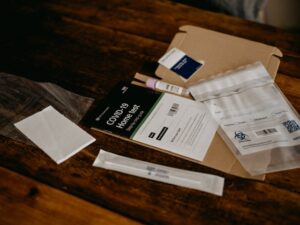6 Small Problems That Can Lead to Biohazard Risks
 Identifying biohazards is one of the key steps you have to take when keeping the people around you safe, whether it’s your family or your work staff. Biohazards can enter the body through absorption, ingestion, inhalation, injection, or through a scrape or cut. Before we go on to what problems can lead to biohazard risks, you must understand biohazards and their common types found in your surroundings.
Identifying biohazards is one of the key steps you have to take when keeping the people around you safe, whether it’s your family or your work staff. Biohazards can enter the body through absorption, ingestion, inhalation, injection, or through a scrape or cut. Before we go on to what problems can lead to biohazard risks, you must understand biohazards and their common types found in your surroundings.
911 Restoration is a professional and reputable restoration company offering these services if you want a thorough clean-up and sanitization of your place.
What Is Biohazard?
As the name suggests, a biohazard is any biological material potentially hazardous to human health. It could be any waste product contaminated with infectious materials. If it is not disposed of properly and an individual comes into contact with it, it could harm them.
6 Examples of Biohazardous Waste and How They Lead to Risks
- Blood and blood products, such as injections, IV tubing, blood transfusion bags, suction canisters, used tampons, and pads, should be disposed of correctly to limit risks. Coming in contact with them can be harmful and hazardous to health.
- Coming in contact with someone who has been diagnosed with an infectious disease, such as COVID-19. Small mistakes, such as not ventilating rooms, not wearing masks, ignoring other precautions, and coming in physical contact with the person, can lead to the infection spreading, which can be deadly for some.
- Sharp waste from households and hospitals needs to be disposed of after usage. Waste products such as razor blades, needles, broken glass vials should not come in contact with people because they could be infected. Make sure to throw the razor after shaving so no one else at home can use the same one on their skin mistakenly.
- Gloves, surgical masks, swabs, or gauze soaked, saturated, or dried and able to flake with blood, bodily fluids, or other infectious materials are considered as infectious waste. A common example is swab tests for COVID-19 need to be wrapped and disposed of to prevent other people from coming in contact with it. Also, when you go get tested, make sure one swab is not being used for patients. A new swab should be used for each patient. Maintain distance in crowded public areas because this virus is airborne, and coming in contact with someone infected can get you infected easily.
- If you own a pet, make sure animal waste is disposed of promptly and safely. This waste can also be harmful to your children or other individuals who come in contact with it accidentally.
- Liquid medical waste, such as clinical specimen liquids or bodily fluids, or drops of blood that may contain an infectious agent. Liquids include semen, cerebrospinal fluid, pleural fluid, vaginal secretions, pericardial fluid, amniotic fluid, and saliva.
Biohazard Can Be Deadly
There are 4 levels of biohazards depending on the severity of the threat they pose;
- Biohazard Level 1: These waste products pose minimal threat to humans and the environment
- Biohazard Level 2: This type of biohazard can cause severe illness in humans and is transmitted through direct contact with infected material.
- Biohazard Level 3: These pathogens can potentially become airborne and cause serious illnesses, such as COVID-19, that aren’t curable easily.
- Biohazard Level 4: Pathogens can cause life-threatening diseases for which there are no treatments available yet.
If you find yourself dealing with one of the above biohazardous situations that are too dangerous for you to handle on your own, call 911 Restoration. Our specialists have handled blood clean-up and special sanitization for contaminated buildings.
How to Handle Biohazard Waste
Once you know what biohazard waste is and have identified it, segregate that waste and discard it appropriately labeled as biohazard waste. The red biohazard bags should be tied securely before disposal. Here is how you should dispose of different biohazard waste types.
Sharp objects, i.e., any object that could cut skin, contaminated with blood or other infectious material should be discarded immediately after use in containers that are closable, puncture-resistant, leak-proof, and labeled properly.
Liquid waste, such as specimens, should be collected into leak-proof, non-breakable vacuum flasks. These flasks are also called overflow flasks and are fitted with HEPA filters, and they are discharged and cleaned every week to prevent contamination.
Solid biohazard waste is usually found in a healthcare environment. Solid biohazardous waste is anything contaminated with infectious biological materials. This waste type should be contained in a sturdy, leak-proof container lined with a biohazard bag and marked with biohazard labeling appropriately.
What to Do When You Can’t Handle It Alone?
If you’re looking for a reputable restoration company in Fayetteville for help, 911 Restoration offers its services within 45 minutes any day of the week, 24/7. We are reliable and have the expertise and professionals to deal with biohazards and their disposal. Contact us now at (910) 889-8086 for our bioremediation services.


